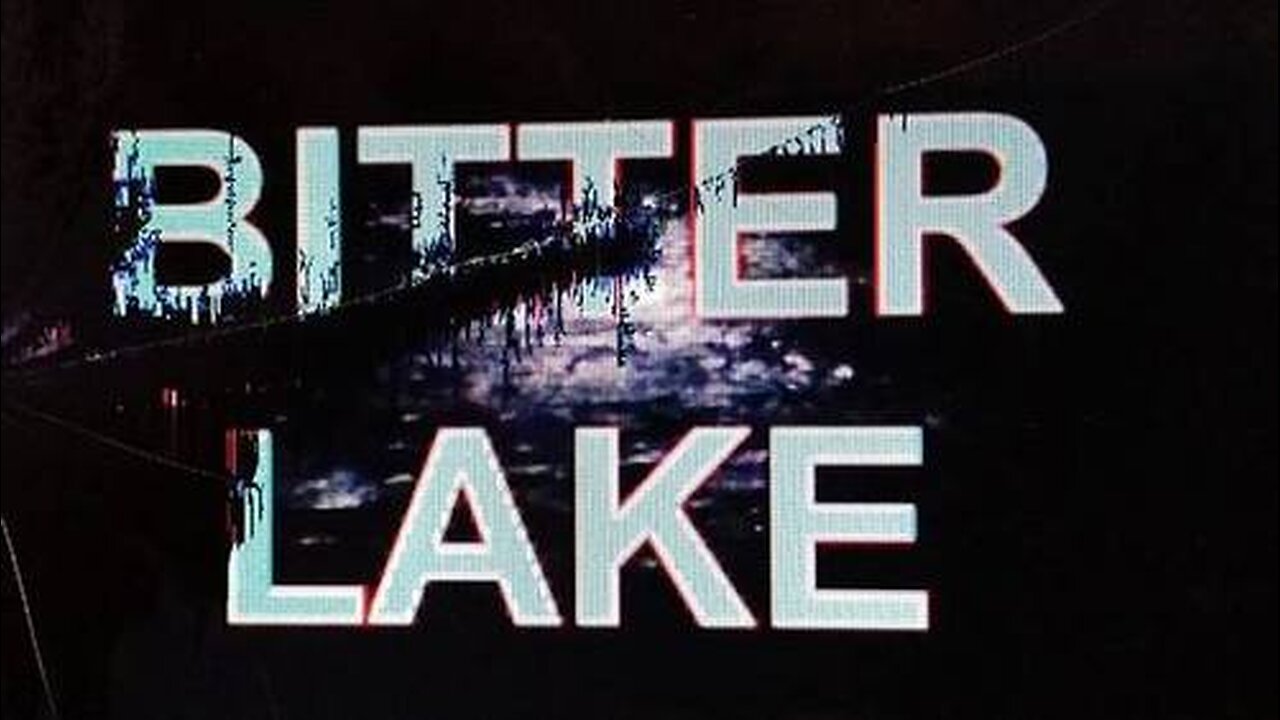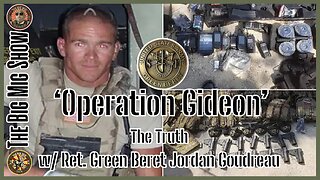Premium Only Content

Adam Curtis | Bitter Lake | (2015)
Adam Curtis playlists:
Miscellaneous https://rumble.com/playlists/H5NqdFg4G4U
Can't Get You Out Of My Head | (2021) https://rumble.com/playlists/dfM0eugWsFI
All Watched Over by Machines of Loving Grace | (2011) https://rumble.com/playlists/UEeqeUNA5tM
Russia 1985-1999 TraumaZone | (2022) https://rumble.com/playlists/I12Kd8gTf8A
Bitter Lake presents a complex narrative about the political and historical forces that have shaped Afghanistan and its relationship with the West. Directed by Adam Curtis, it weaves together archival footage, interviews, and historical analysis to create a tapestry of interconnected events spanning decades.
The film takes its name from the Great Bitter Lake in Egypt, where U.S. President Franklin D. Roosevelt met with Saudi King Abdulaziz in 1945. This meeting set the stage for a long-standing alliance between the United States and Saudi Arabia, which would have far-reaching consequences for Afghanistan and the broader Middle East.
Curtis traces the history of Afghanistan from the 1950s onwards, focusing on the country’s attempts at modernization and the subsequent interventions by foreign powers. The documentary highlights the role of the United States, the Soviet Union, and Saudi Arabia in shaping Afghanistan’s trajectory. It explores how these nations’ competing interests and ideologies contributed to the country’s instability and eventual descent into conflict.
The film pays particular attention to the unintended consequences of well-intentioned development projects. For example, it discusses how American-led dam-building efforts in the Helmand Valley inadvertently led to increased opium production, as the altered landscape became ideal for poppy cultivation. This serves as a metaphor for the broader theme of how foreign interventions often produce unexpected and sometimes disastrous results.
Bitter Lake also examines the rise of Wahhabism, a conservative Islamic doctrine promoted by Saudi Arabia, and its influence on Afghan society. The documentary argues that the spread of this ideology, combined with Cold War politics and the Soviet invasion, created the conditions for the emergence of militant Islamist groups in Afghanistan.
The narrative extends beyond Afghanistan, drawing connections to other global events and conflicts. Curtis suggests that the complex situation in Afghanistan reflects broader trends in international politics, including the decline of grand political narratives and the increasing influence of financial institutions on government policy.
Throughout the documentary, Curtis challenges simplistic narratives about good versus evil, arguing that reality is far more nuanced and complex. He presents Afghanistan as a place where different worldviews and ideologies have clashed, often with devastating consequences for the Afghan people.
-
 59:28
59:28
Flyover Conservatives
23 hours agoInsider Reacts to Trump’s 100 Hours: Davos, WHO, Climate Change, DEI… - Alex Newman | FOC Show
30.7K4 -
 1:04:30
1:04:30
Battleground with Sean Parnell
10 hours agoPresident Trump Is Flooding The Zone
119K12 -
 2:12:53
2:12:53
We Like Shooting
16 hours ago $0.53 earnedWe Like Shooting 595 (Gun Podcast)
10.5K -
 2:00:28
2:00:28
megimu32
5 hours agoON THE SUBJECT: 90s Toys, Fat Phobia, and Crying Libs!
20.8K2 -
 LIVE
LIVE
Right Side Broadcasting Network
13 hours agoLIVE REPLAY: President Trump Addresses House GOP in Doral, FL - 1/27/25
3,486 watching -
 2:37:19
2:37:19
Robert Gouveia
8 hours agoTrump Addresses House Republicans; Tulsi Confirmation Fight; CIA Lab Leak
52.5K27 -
 54:38
54:38
LFA TV
1 day agoMankind Refuses the Way of Peace | TRUMPET DAILY 1.27.25 7pm
45.9K4 -
 1:41:27
1:41:27
2 MIKES LIVE
10 hours ago2 MIKES LIVE #171 Deep Dive Monday!
29.4K1 -
 1:32:53
1:32:53
The Big Mig™
6 hours agoOperation Gideon, The Truth w/ Ret. Green Beret Jordan Goudreau
37.4K8 -
 24:23
24:23
The Based Mother
8 hours ago $1.83 earnedGIRL, PLEASE! Selena Gomez gets destroyed for her sloppy crying fit over illegal aliens.
14.6K26